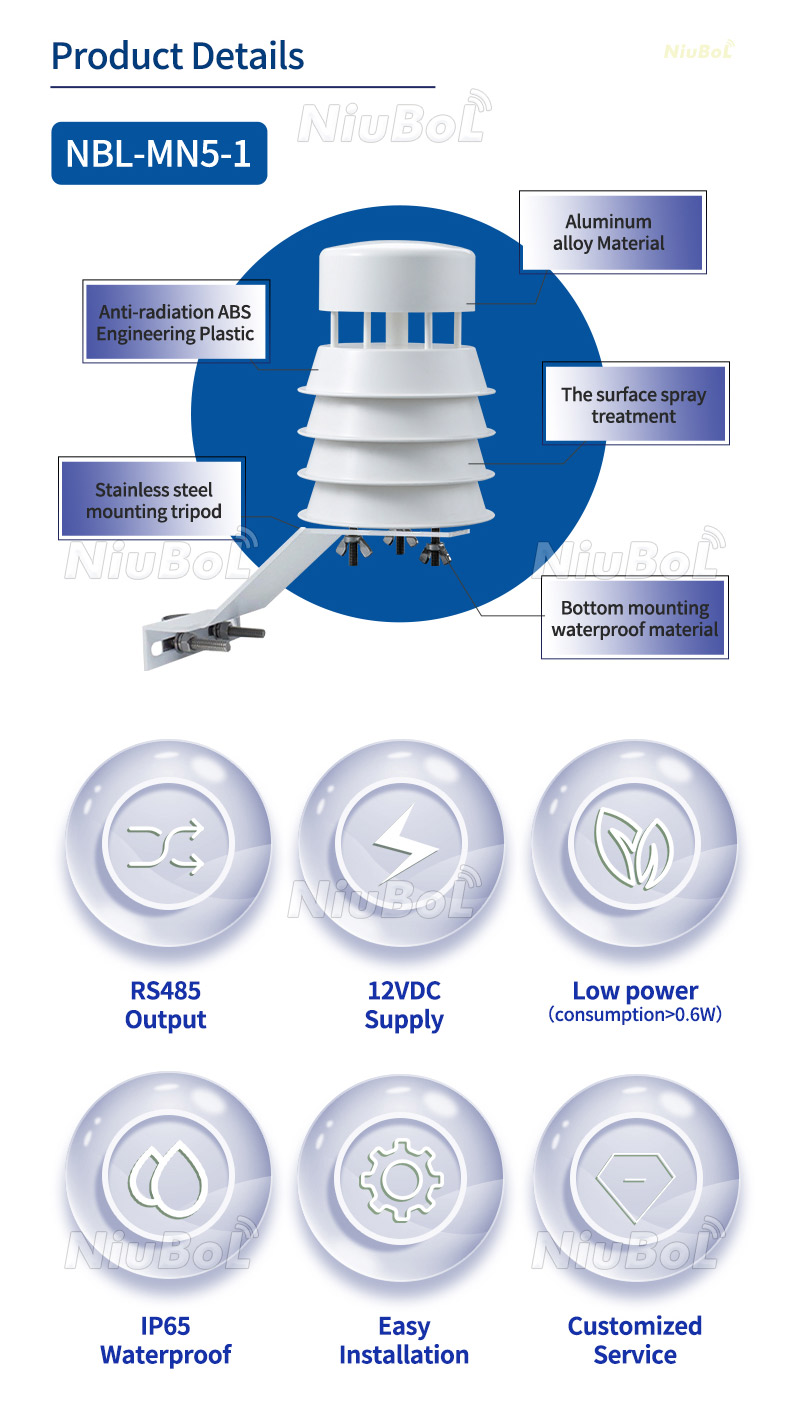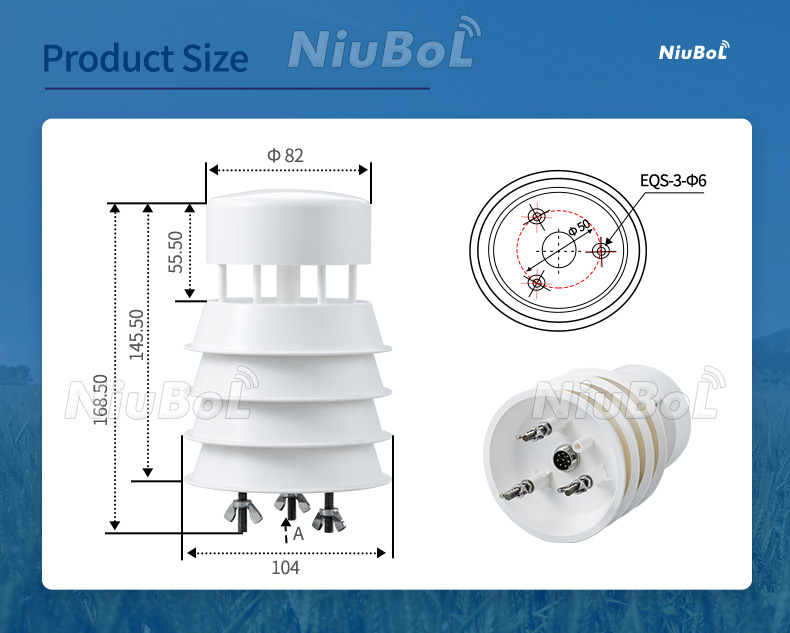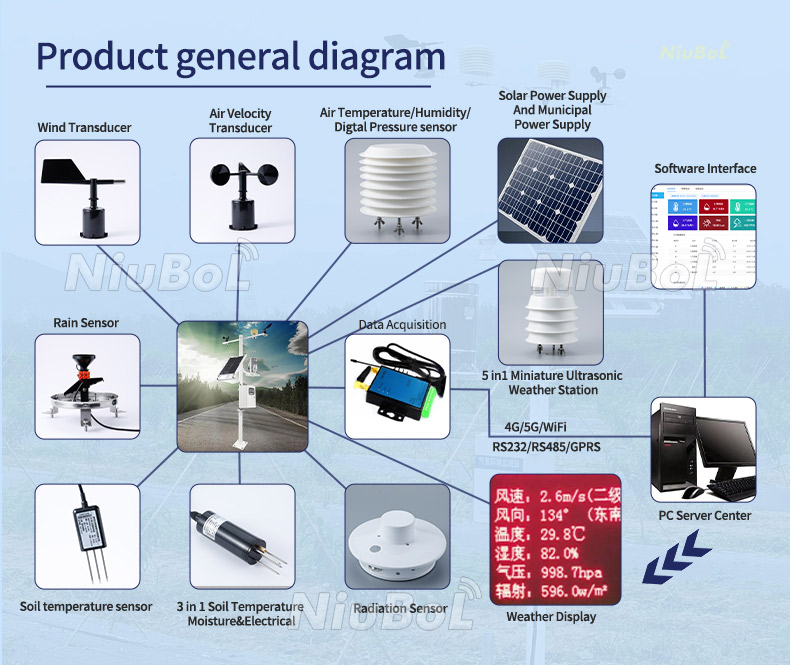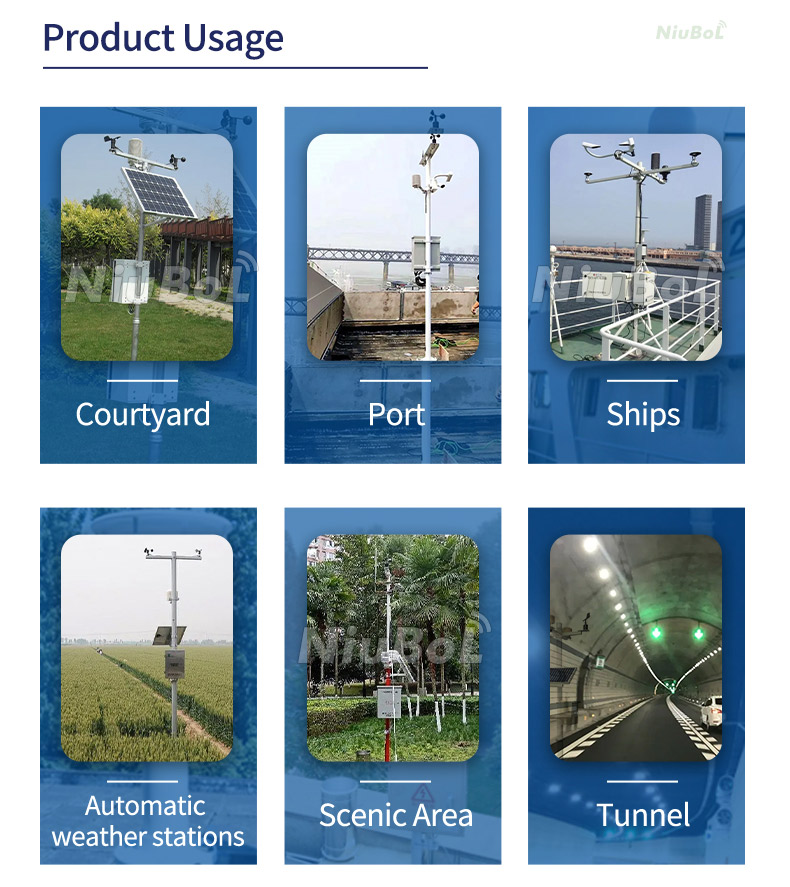

— Blogs —
—Products—
 Consumer hotline +8618073152920
Consumer hotline +8618073152920 WhatsApp:+8615367865107
Address:Room 102, District D, Houhu Industrial Park, Yuelu District, Changsha City, Hunan Province, China
Product knowledge
Time:2022-09-13 21:46:26 Popularity:697
The wind speed sensor is an intelligent instrument with convenient use, good performance and high reliability. It can be widely used to measure the wind speed in greenhouses, environmental protection, weather stations and breeding places. There are many types of wind speed sensors, which can be mainly divided into pitot tube wind speed sensors, propeller wind speed sensors, Hall effect electromagnetic wind speed sensors, hot wire wind speed sensors and ultrasonic wind speed sensors.
Compared with the traditional wind speed sensor, the ultrasonic wind speed sensor has the advantages of good measurement accuracy and multiple functions, and the structure of its probe is relatively simple, which replaces the traditional wind speed and direction sensor in many application fields. Therefore, people will choose this kind of sensor in some field accurate measurement work. The ultrasonic wind speed sensor mainly uses the ultrasonic time difference method to measure the wind speed. The propagation speed of sound in the air will be superimposed with the airflow speed in the wind direction.

If the ultrasonic wave travels in the same direction as the wind, its speed will increase; otherwise, its speed will decrease. Therefore, under fixed detection conditions, the speed of ultrasonic propagation in the air can correspond to the wind speed function. The precise wind speed and direction can be obtained by calculation. For example: Through the principle of pressure difference change, a fixed obstacle (orifice, nozzle, etc.) is set in the moving direction, so that a pressure difference will occur depending on the flow rate. By measuring the differential pressure, it can be converted into a measurement of the flow rate.

Ultrasonic anemometer is a measuring sensor or measuring instrument that calculates wind speed and wind direction by sending sound wave pulses and measuring the time or frequency (Doppler transform) difference at the receiving end.
Traditional mechanical anemometers have rotating parts, which are prone to wear. Mechanical structures can be damaged by inclement weather and corroded by sand and fumes.
At the same time, due to the existence of friction, the mechanical anemometer also has a starting wind speed, and the wind speed lower than the starting value will not be able to drive the propeller or the wind cup to rotate. Therefore, the mechanical anemometer will not be able to measure the light wind below the starting wind speed. In order to overcome the inherent shortcomings of the traditional cup-type anemometer, the new ultrasonic anemometer came into being.
Ultrasonic anemometers have no moving mechanical parts, but are replaced by several ultrasonic sensors. Theoretically, the lower limit of the wind speed range that can be measured is zero, and there is no starting wind speed; the upper limit of the wind speed can be adjusted according to the distance between the sensors.

Ultrasonic wind measurement is an application of ultrasonic detection technology in gaseous media. It uses the influence of the propagation speed of ultrasonic waves in the air to be affected by the air flow (wind) to measure the wind speed. The speed of sound in the air is superimposed on the speed of the airflow in the wind direction.
If the propagation direction of the ultrasonic wave is the same as the wind direction, its speed will be accelerated; on the contrary, if the ultrasonic wave propagation direction is opposite to the wind direction, its speed will be slowed down. Therefore, under fixed detection conditions, the speed of ultrasonic propagation in the air can correspond to the wind speed function. The precise wind speed and direction can be obtained by calculation.
Compared with the conventional wind cup or rotor anemometer, the biggest feature of this measurement method is that the entire wind measurement system does not have any mechanical rotating parts, which belongs to the inertia-free measurement, so it can accurately measure the high-frequency components of the gust pulsation in the natural wind. , Combined with modern computer technology, the characteristics of natural wind can be revealed at a higher level, which is of great significance for improving the ability of wind resistance and disaster reduction and the rational use of wind resources.

Product introduction of ultrasonic wind speed and direction sensor:
The ultrasonic wind speed and direction sensor is a fully digital detection, high-precision sensor. It is integrated by the ultrasonic wind speed and direction sensor. It can accurately and quickly detect the wind speed and wind direction. The built-in signal processing unit can output corresponding signals according to user needs. No moving parts, high-strength structural design for accurate detection in harsh weather environments, accurate and stable element measurement of ultrasonic wind speed and direction, low maintenance, open communication protocols, etc.
Ultrasonic wind speed and direction sensors can be widely used in the fields of meteorology, ocean, environment, airports, ports, laboratories, industry, agriculture and transportation.
Prev:Advantages of ultrasonic wind speed and direction sensor
Next:Atmospheric temperature, humidity and pressure integrated sensor (suspended)
Related recommendations
Sensors & Weather Stations Catalog
Agriculture Sensors and Weather Stations Catalog-NiuBoL.pdf
Weather Stations Catalog-NiuBoL.pdf
Related products
 Combined air temperature and relative humidity sensor
Combined air temperature and relative humidity sensor Soil Moisture Temperature sensor for irrigation
Soil Moisture Temperature sensor for irrigation Soil pH sensor RS485 soil Testing instrument soil ph meter for agriculture
Soil pH sensor RS485 soil Testing instrument soil ph meter for agriculture Wind Speed sensor Output Modbus/RS485/Analog/0-5V/4-20mA
Wind Speed sensor Output Modbus/RS485/Analog/0-5V/4-20mA Tipping bucket rain gauge for weather monitoring auto rainfall sensor RS485/Outdoor/stainless steel
Tipping bucket rain gauge for weather monitoring auto rainfall sensor RS485/Outdoor/stainless steel Pyranometer Solar Radiation Sensor 4-20mA/RS485
Pyranometer Solar Radiation Sensor 4-20mA/RS485
Screenshot, WhatsApp to identify the QR code
WhatsApp number:+8615367865107
(Click on WhatsApp to copy and add friends)